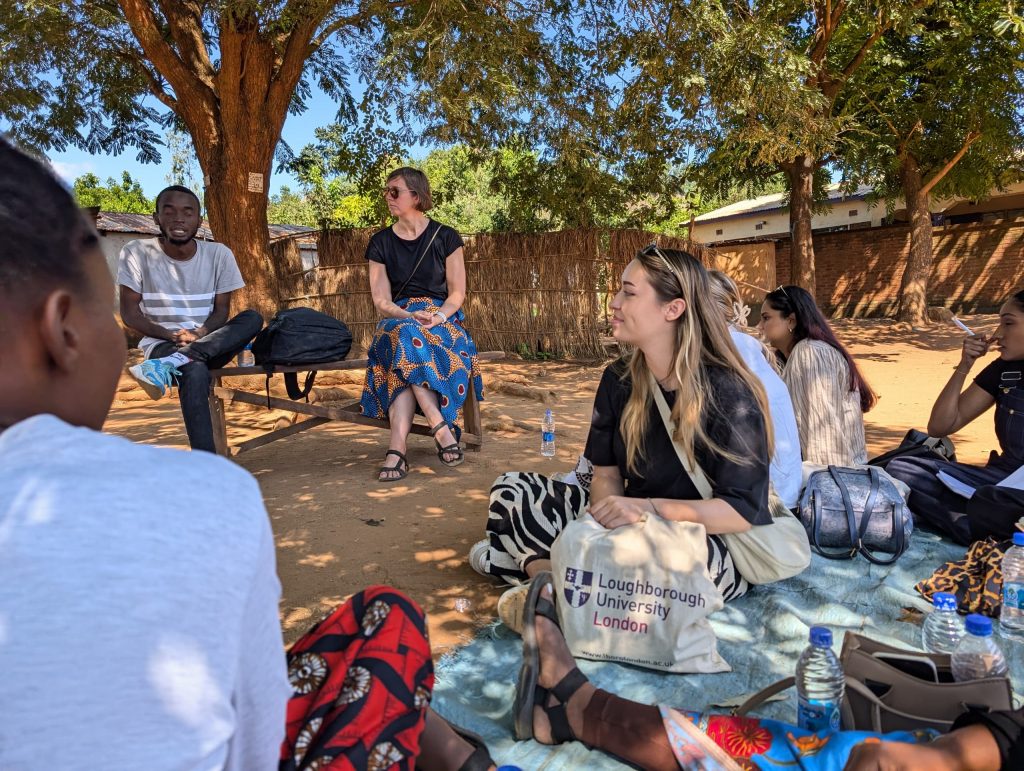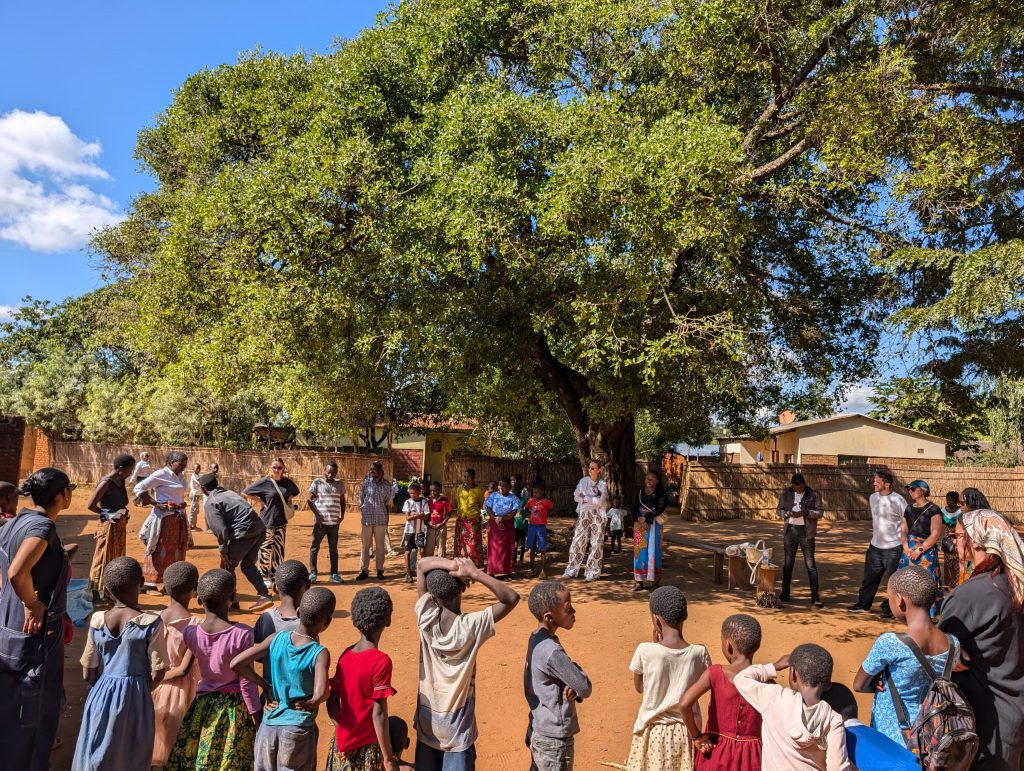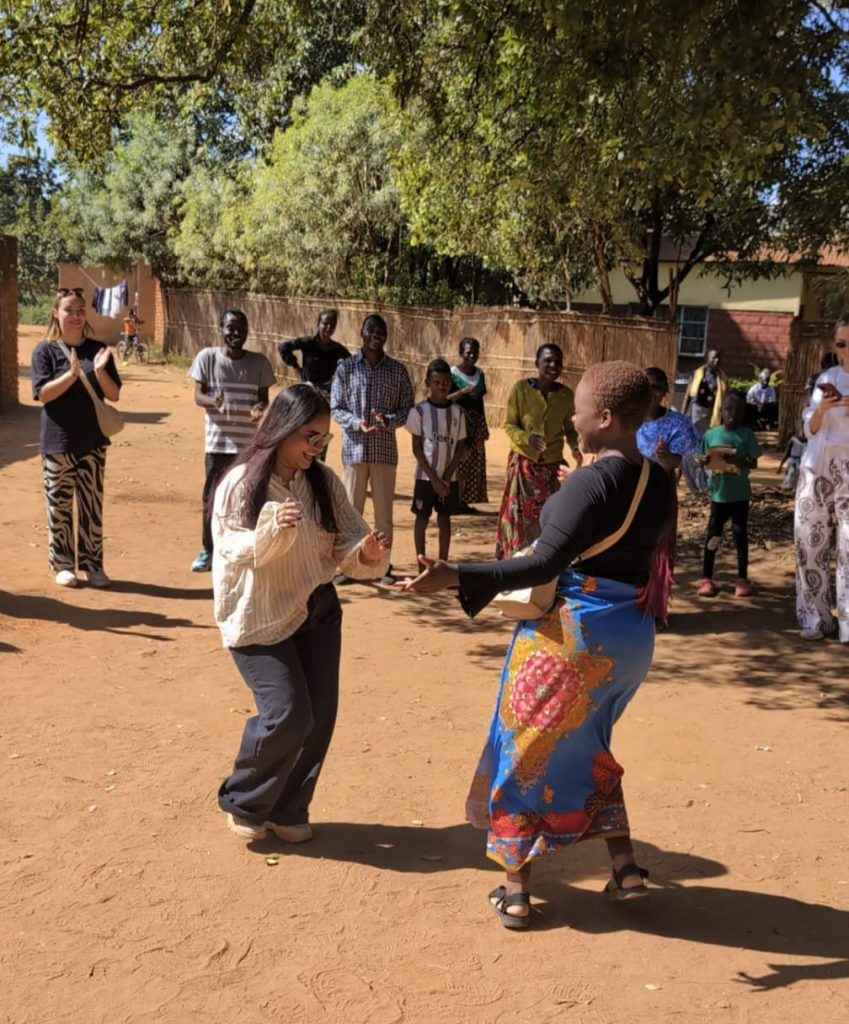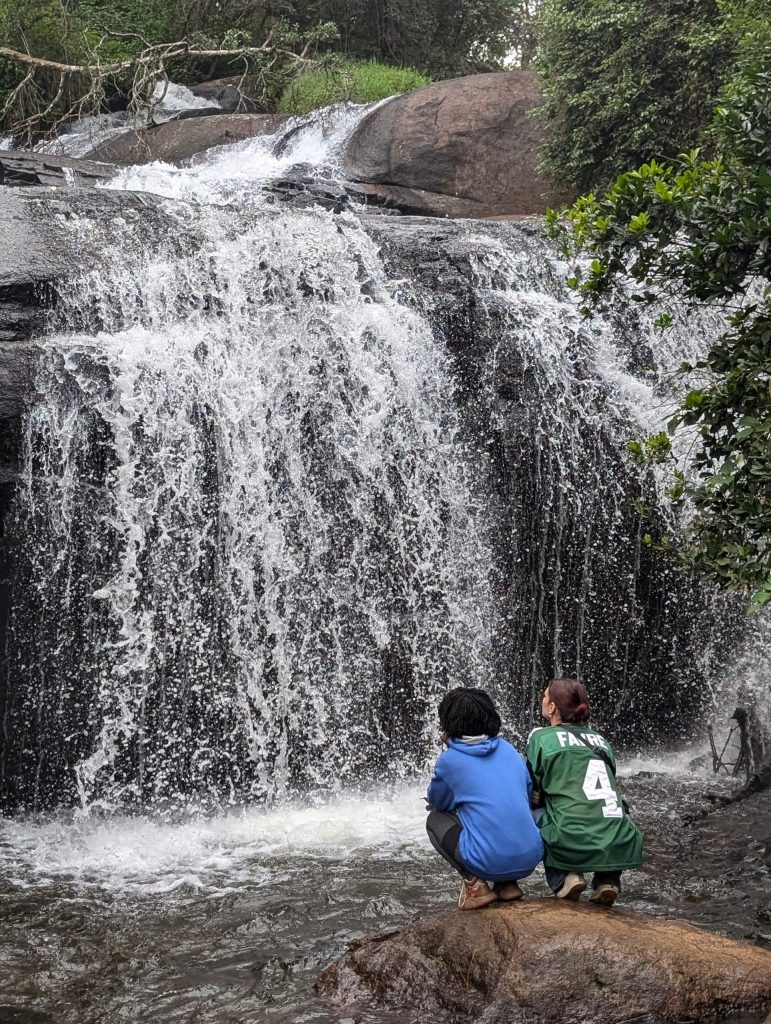Field Notes from Malawi: Lessons Beyond the Classroom
by Ely Justiniani Pérez and Anna Kama Ligęzowska

When we boarded the plane to Blantyre, Malawi, we carried with us a journal and a lot of expectations shaped by lectures, readings, and policy papers. We were told this trip was about “learning from the Global South,” but what that really meant didn’t sink in until our feet hit the ground. It was all part of the module Learning from the Global South: Field Trip , a two-week intensive experience organised in collaboration with the University of Malawi (UNIMA). Throughout each experience, we took notes, and every evening we were expected to reflect in our journals on those same notes and on everything we had done and seen, our opinions, what had struck us the most… Surprisingly, our journals would turn out very different by the end of the trip, even though we all followed the same itinerary. But we came from different academic backgrounds and interests, and in Malawi, there were enough themes and lessons to feed each of our curiosities.
Our journey
Our journey began in Zomba. There, we were welcomed onto the UNIMA campus. These first days were a whirlwind of introductions to lecturers, students, and the development challenges and approaches we would be exploring. One of our first visits was to YONECO, a local NGO that supports women and youth through radio programming, helplines, and community projects. They showed us a small studio from which they broadcast to almost the entire country. There, they explained how they sustain their programmes through advertising, navigating ethical dilemmas like having to reject sponsorship from tobacco and alcohol companies, despite the large sums they offer. Their programmes are aimed at young people, so promoting any kind of drug use goes against their mission.

The core of our trip unfolded in a rural village called Mpunga, where we spent three days learning and unlearning stereotypical perceptions one might have about life in a village like this in an African country or anywhere else in the Global South. We discovered that many villages are led by women, that some have internal systems of economic support among residents, and we were able to witness aspects of their culture, such as the use of songs to welcome and farewell visitors, to play, and even to create a more peaceful environment for engaging with guests like us.
The main purpose of our days in Mpunga was to learn about Theatre for Development (TFD) as a method for encouraging social change interactively and engagingly. We were told that this is a widely used method across Africa, and in Malawi in particular, we saw how TFD sparks the interest of communities and enables them to highlight problems and propose solutions—either through acting or as spectators—in an enjoyable and meaningful way.

In between, we took time to breathe. A hike to Williams Falls, a visit in Liwonde National Park – reminders that landscapes hold memory, too, and that nature and development are deeply intertwined.

Our reflections
After the trip, we had several opportunities to reflect on everything we had seen and experienced. One of the aspects we valued most was that the programme had been designed not only for us, but also with local students in mind, allowing them to benefit from the experience and learn alongside us. Perhaps best of all, the programme gave each of us the freedom to shape the journey around our own interests:
- Development students focused on issues like education or climate change
- Peace-building students reflected on how these learnings could be applied in refugee camps or reconciliation processes
- Media students explored how streaming platforms might help preserve and promote local songs as part of Malawi’s sonic heritage.
Dr Jessica Noske Turner, the lead organiser of this experience, and Dr Anzé Zadel not only guided our learning and answered our questions—they gave us the freedom to be creative and to explore the themes that truly inspired us. If there is one thing, we all agreed on—despite how different our field notes and travel journals turned out—it is that this was one of the most enriching academic experiences we’ve ever had. One of those rare moments that will remain etched in the pages of our lives.
Loughborough University London
Blogging everything that’s happening at Loughborough University London